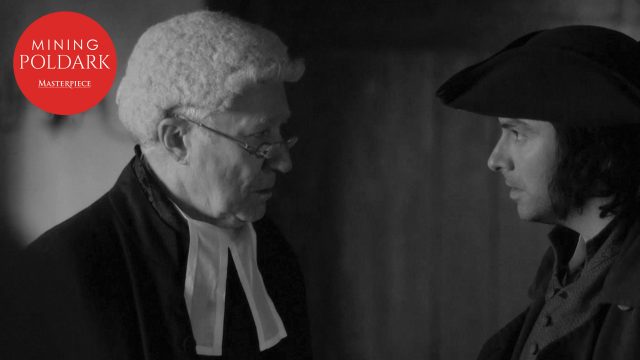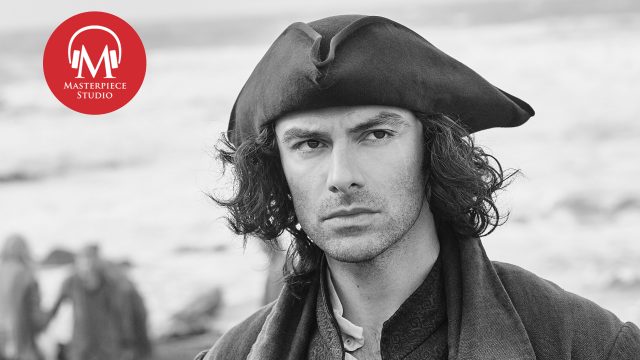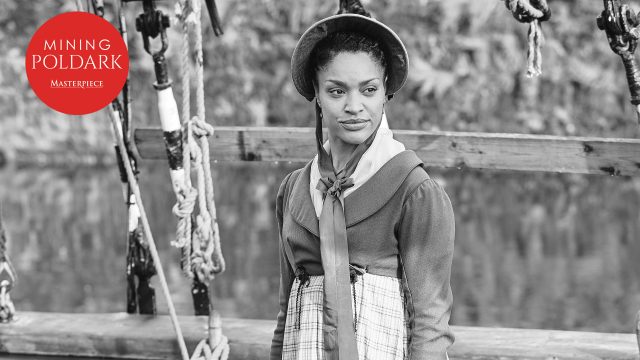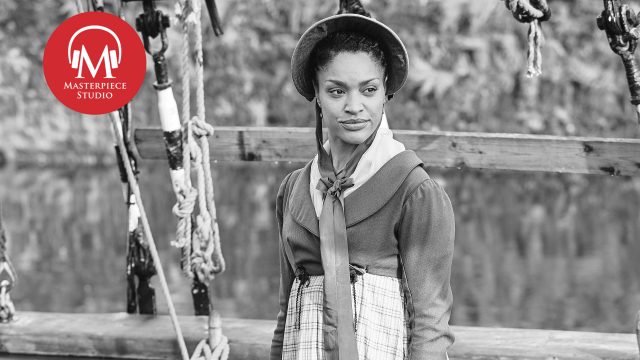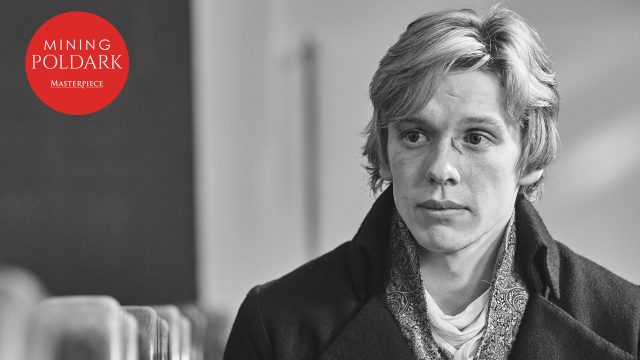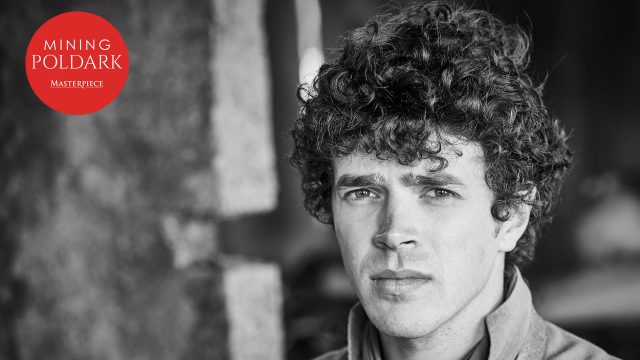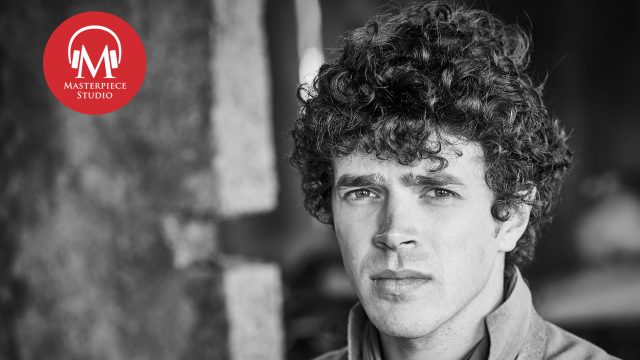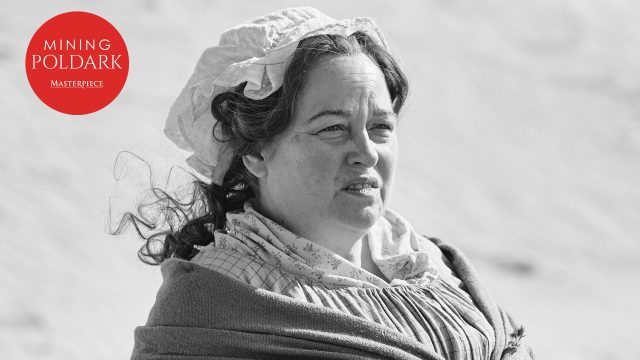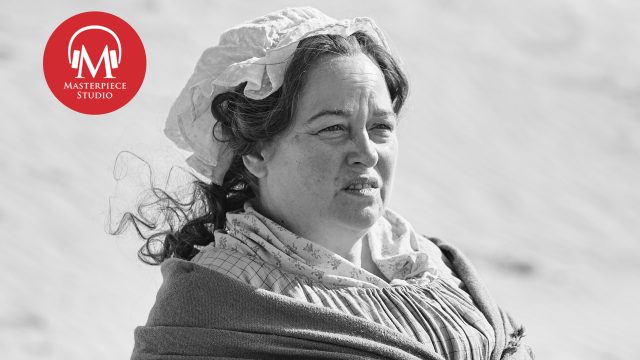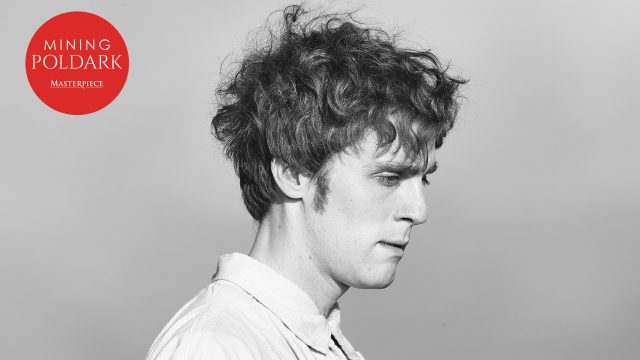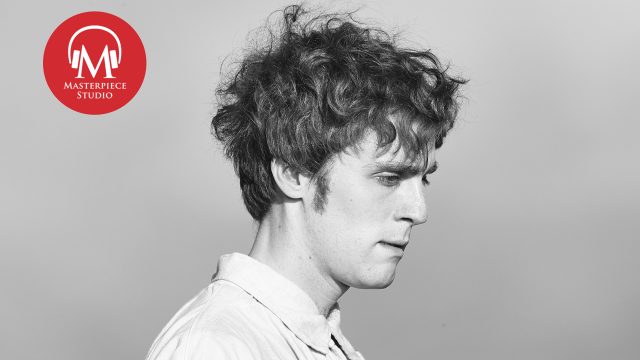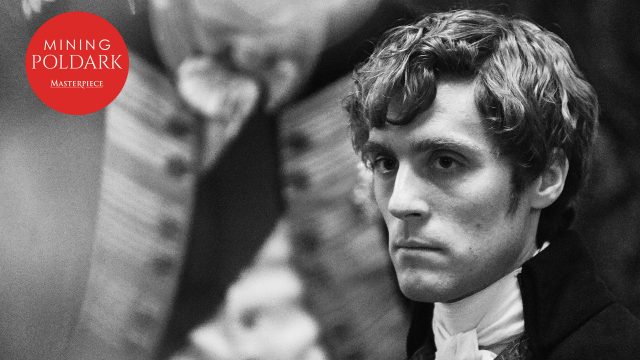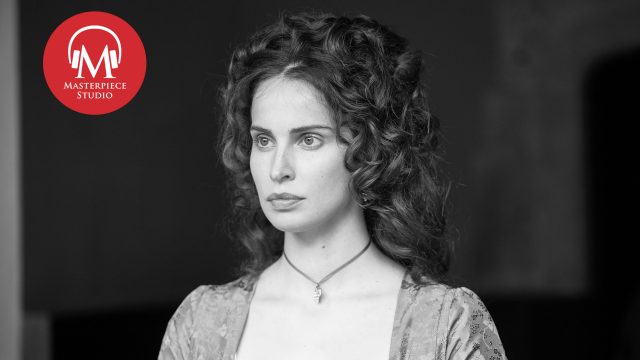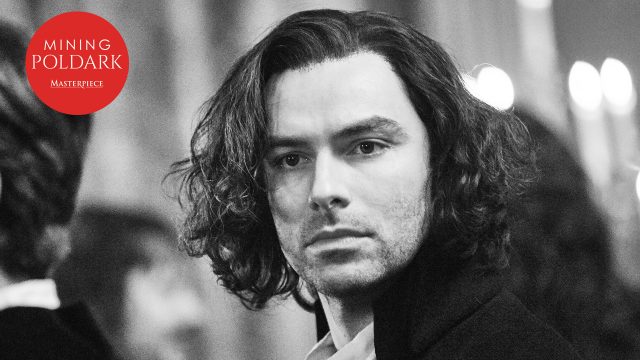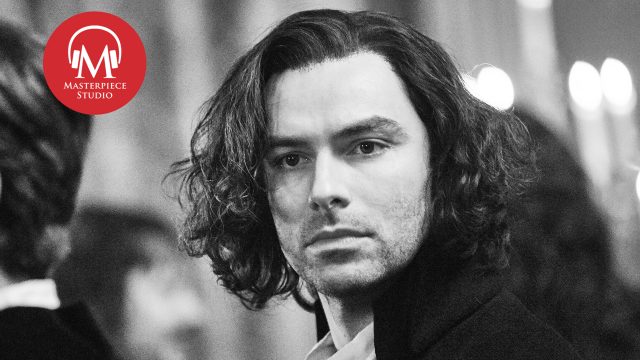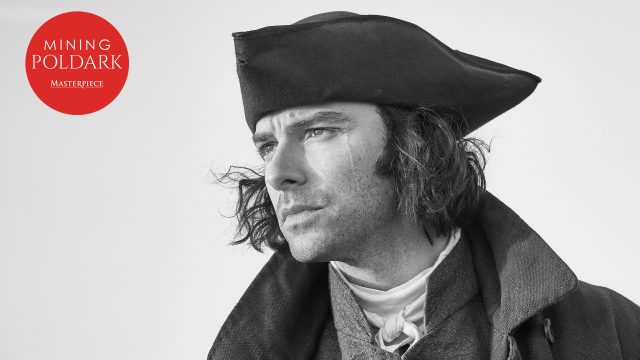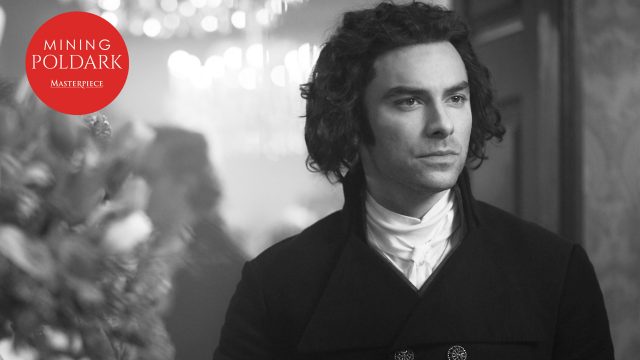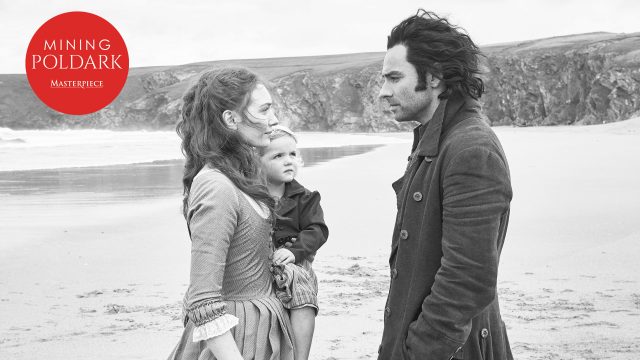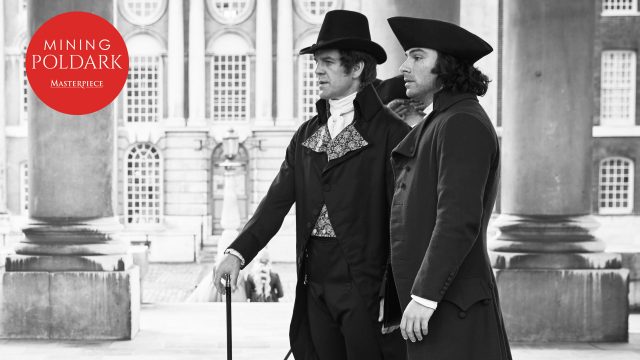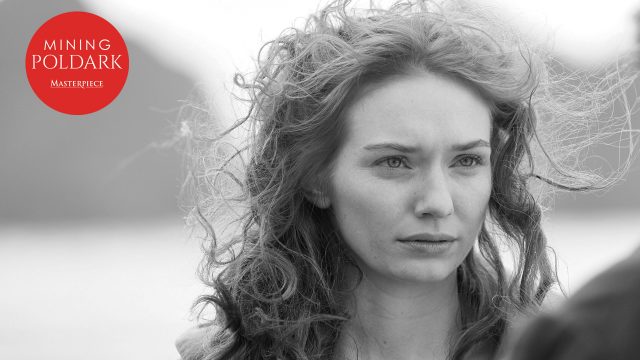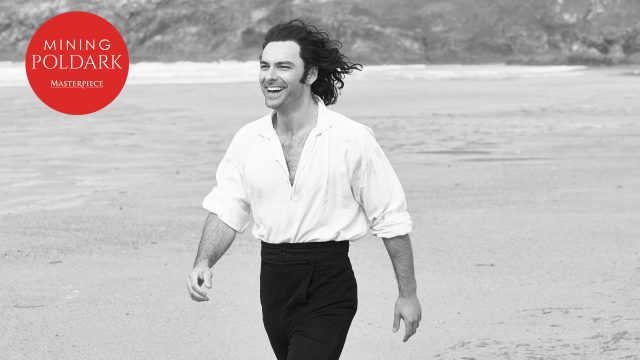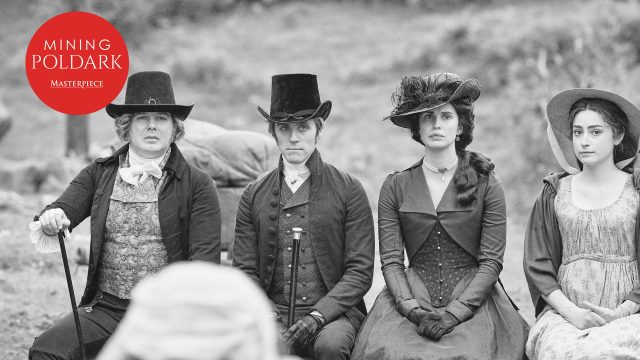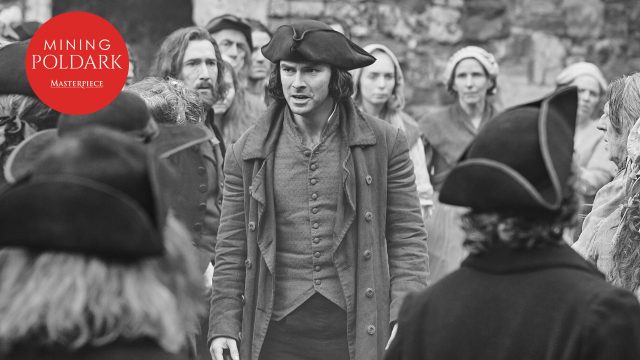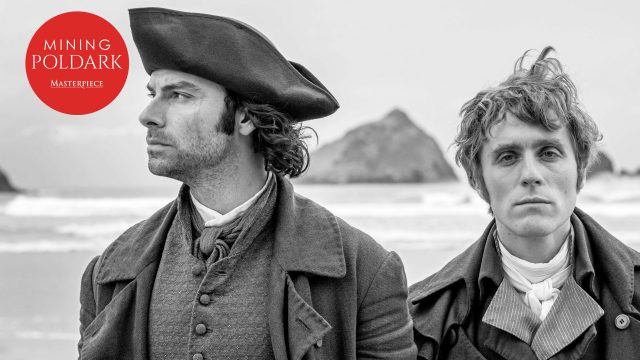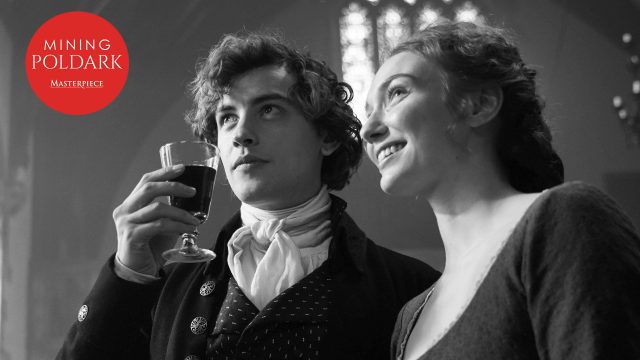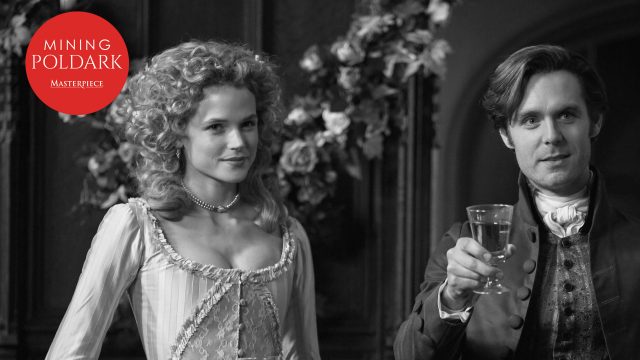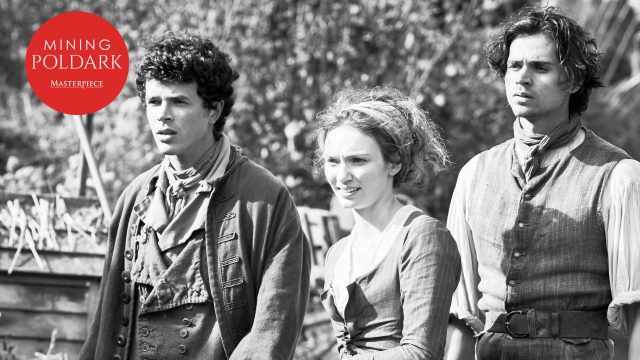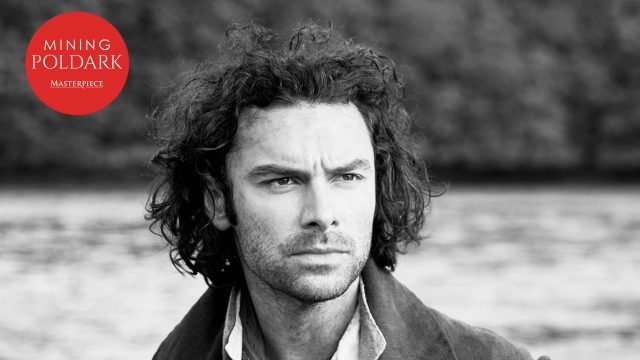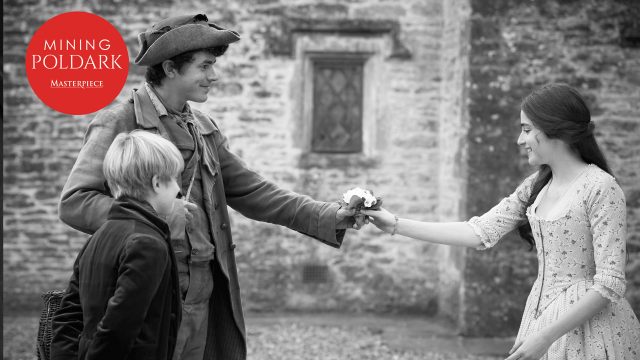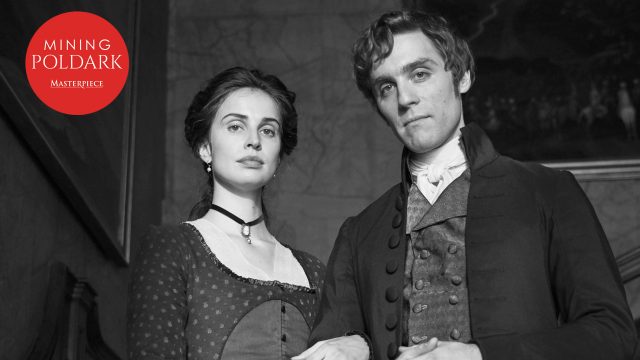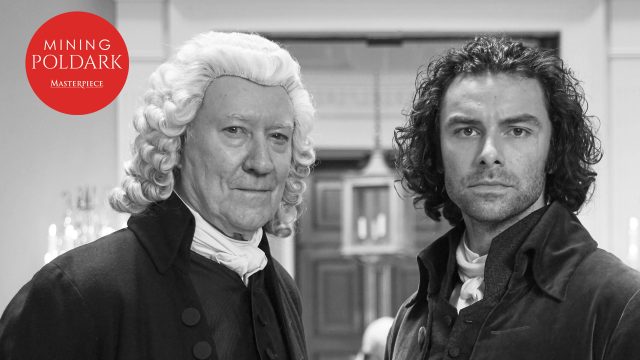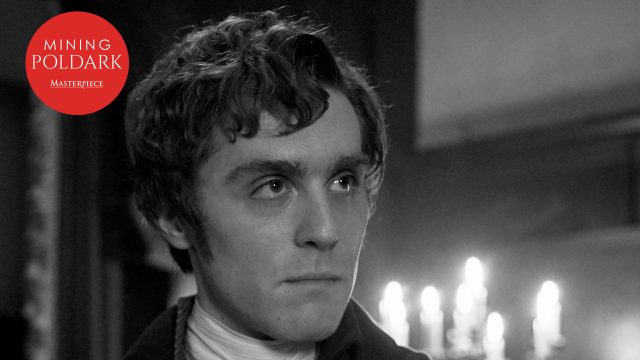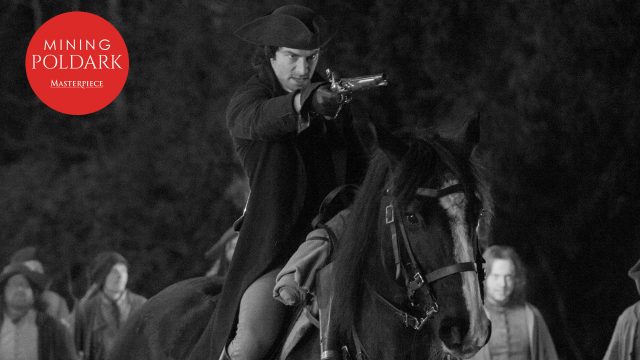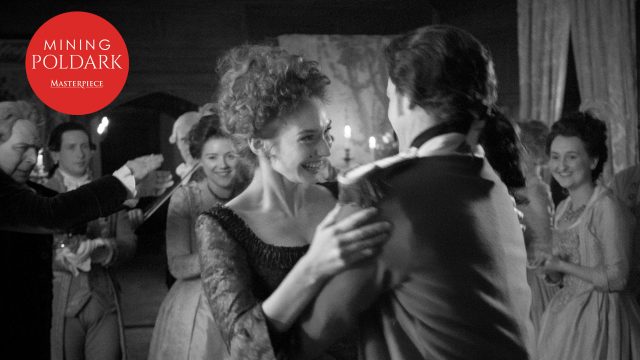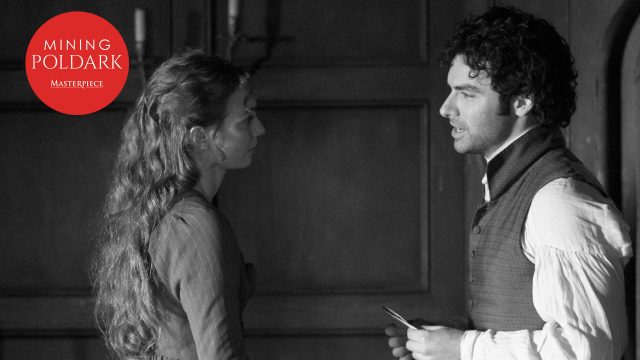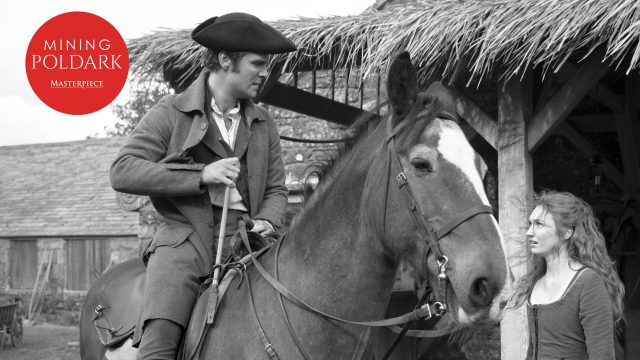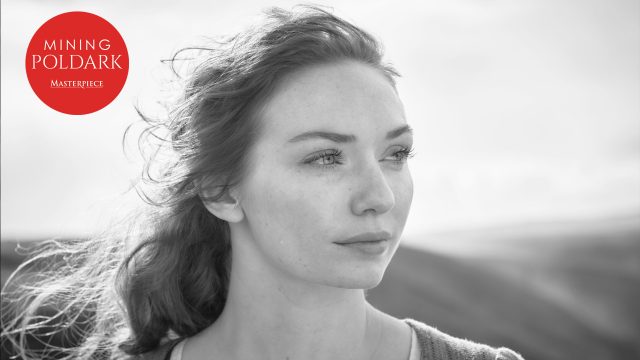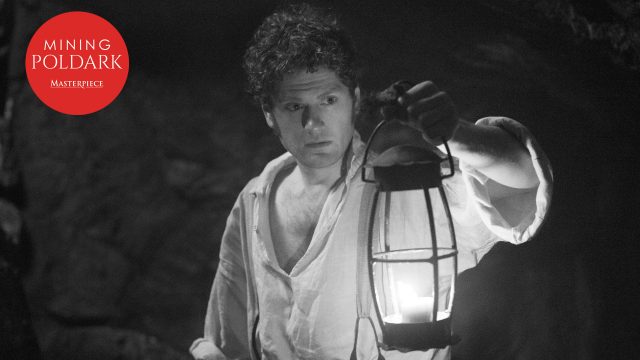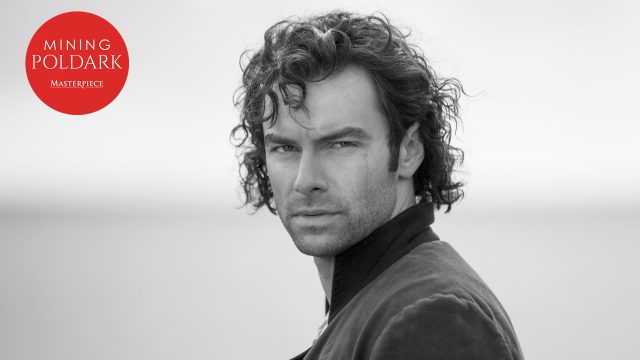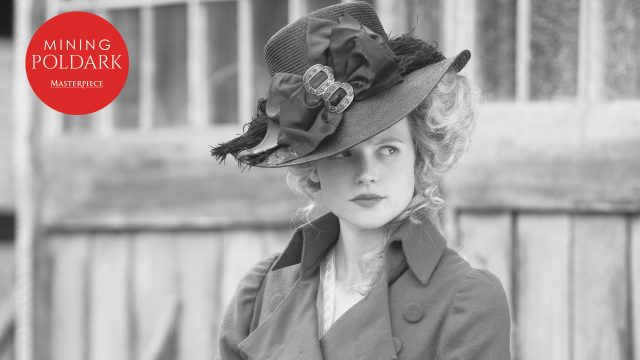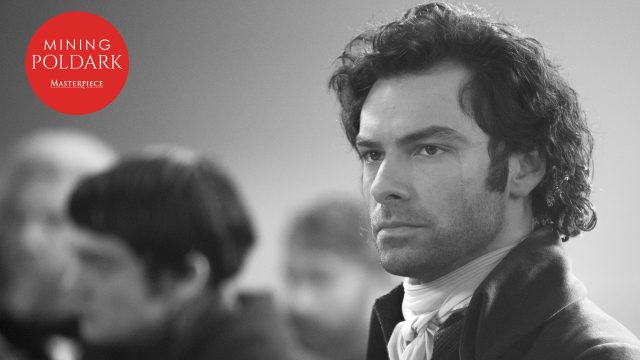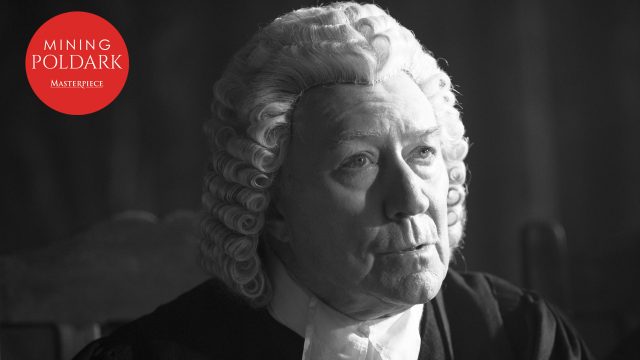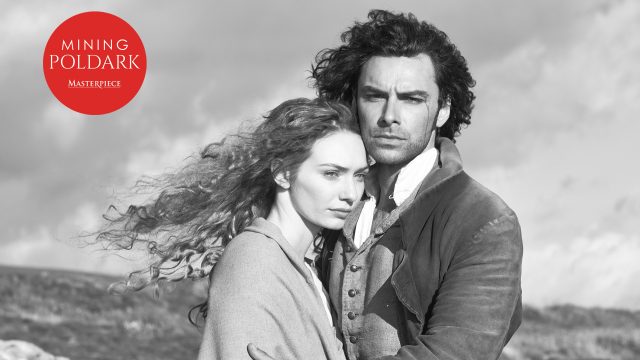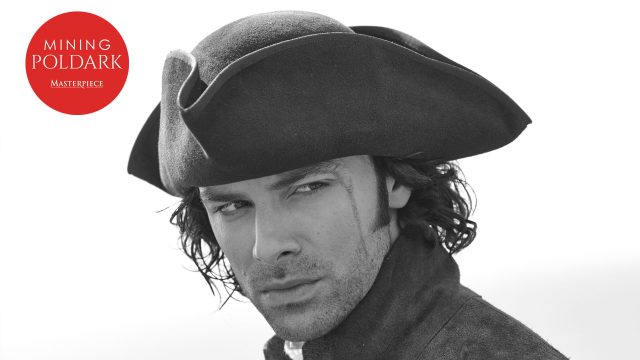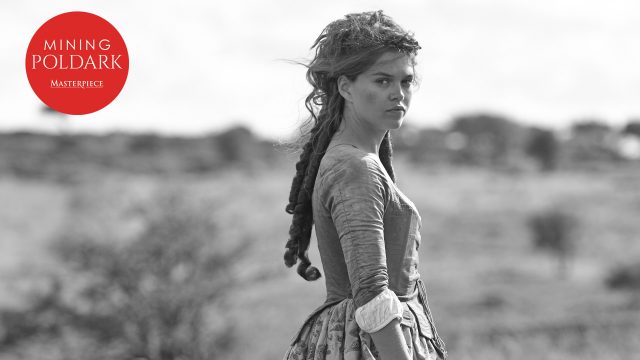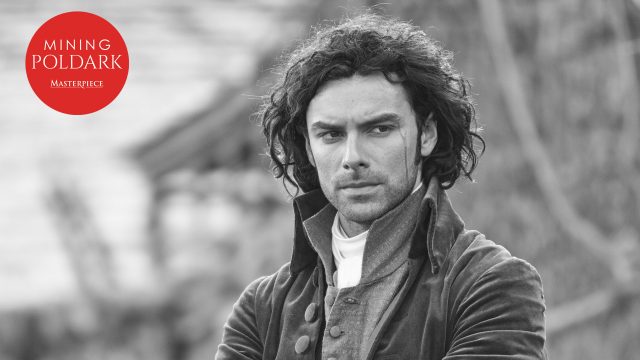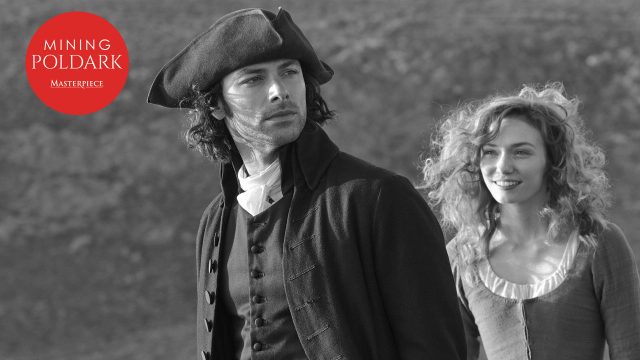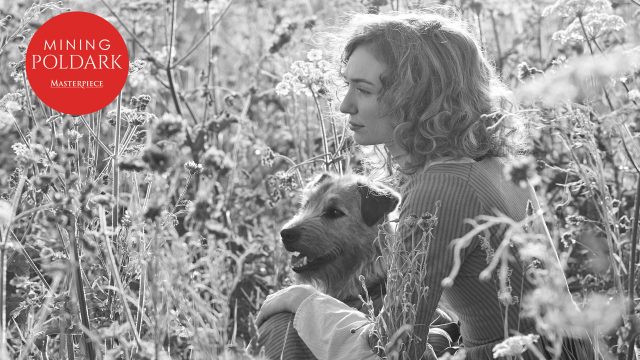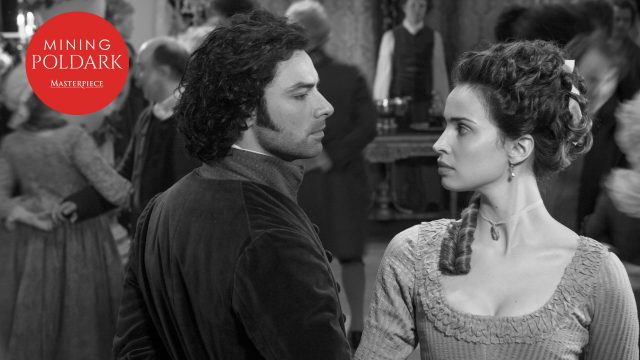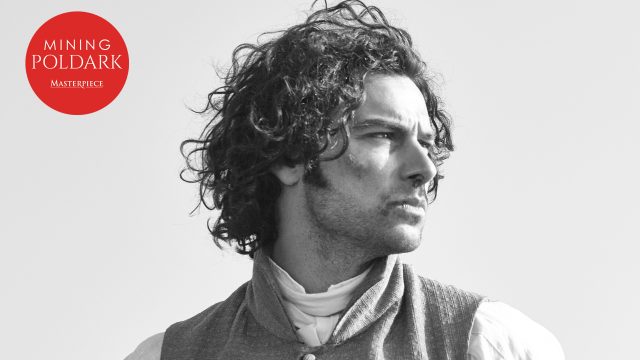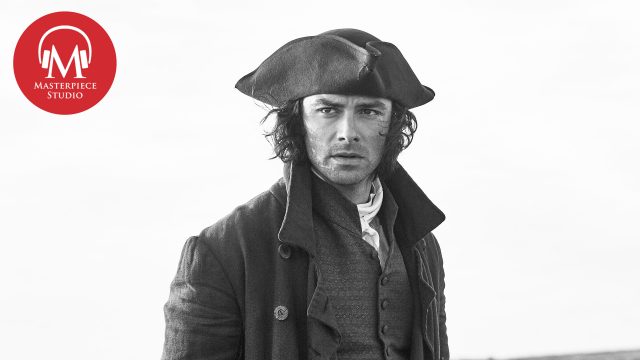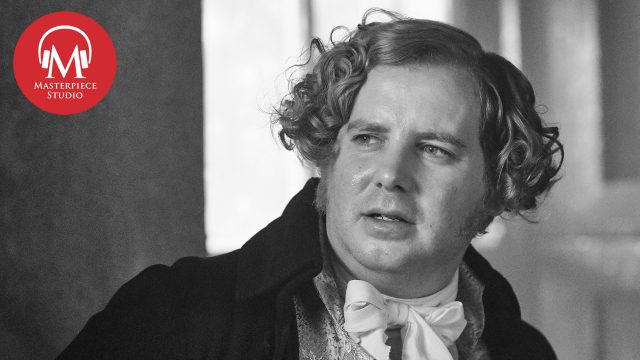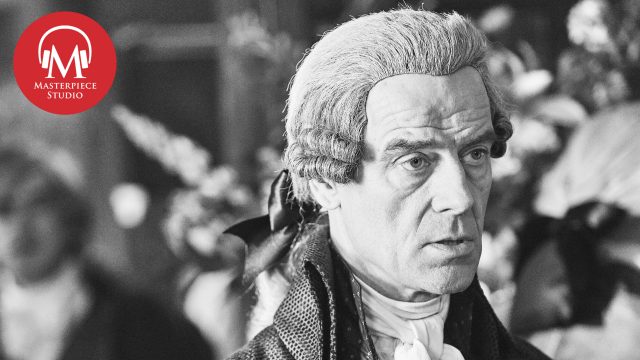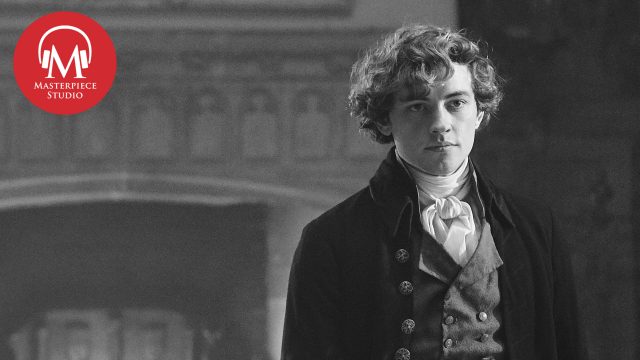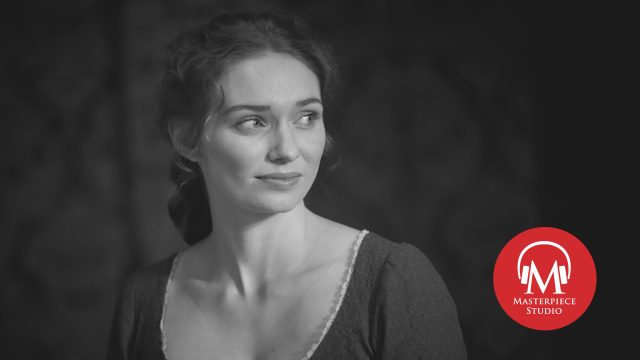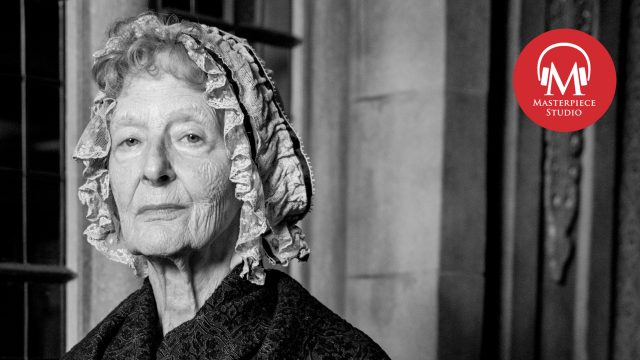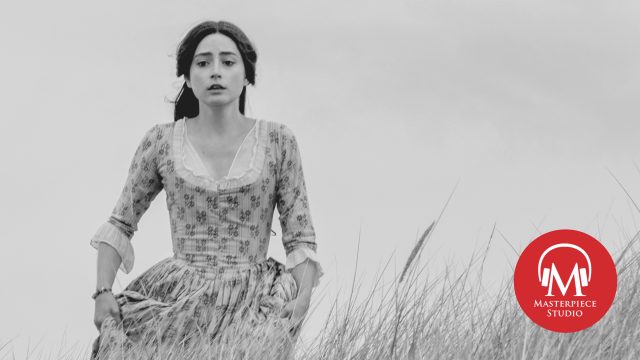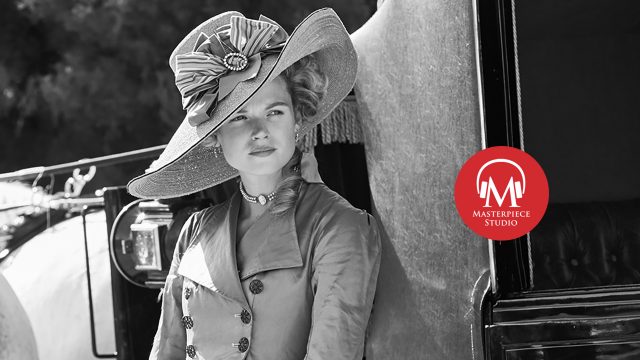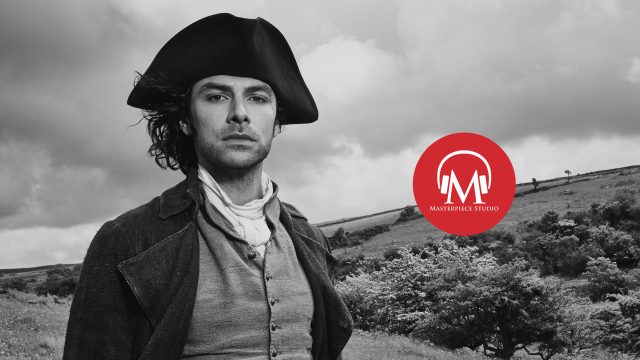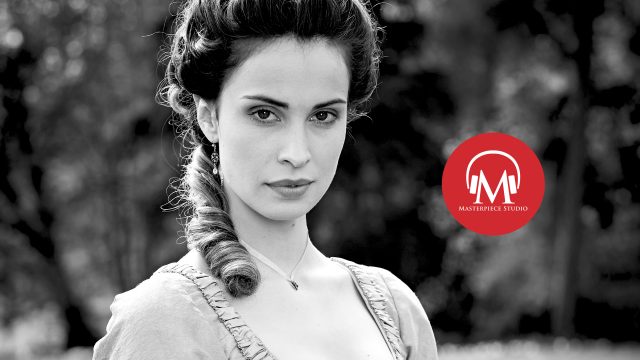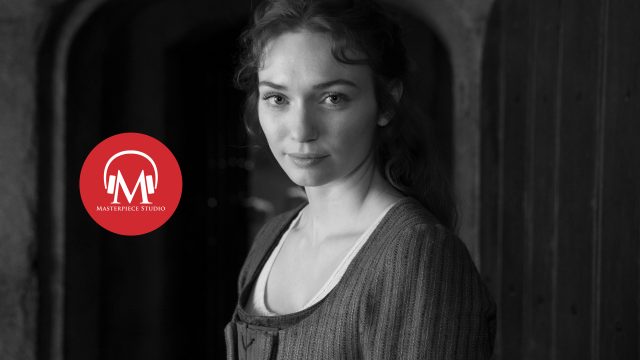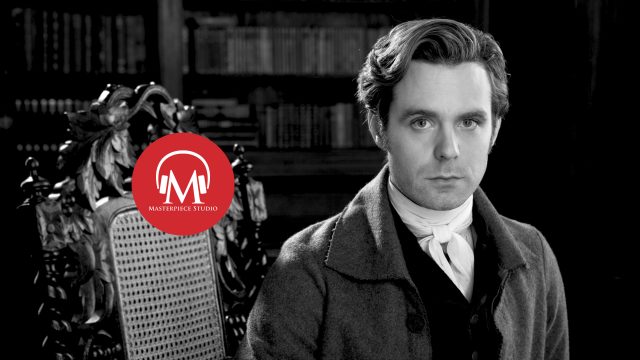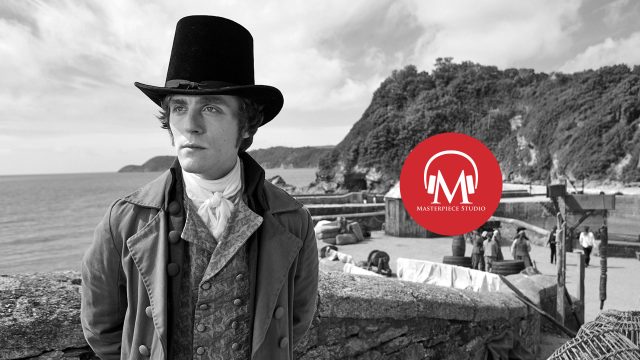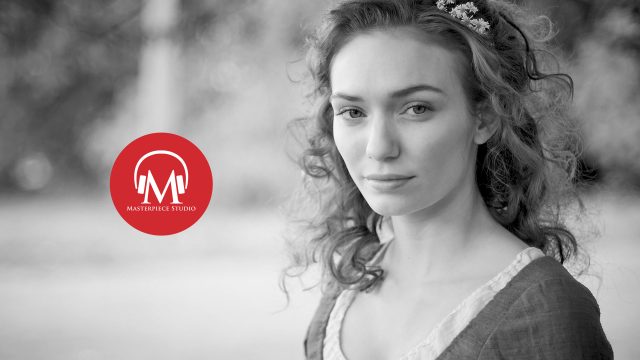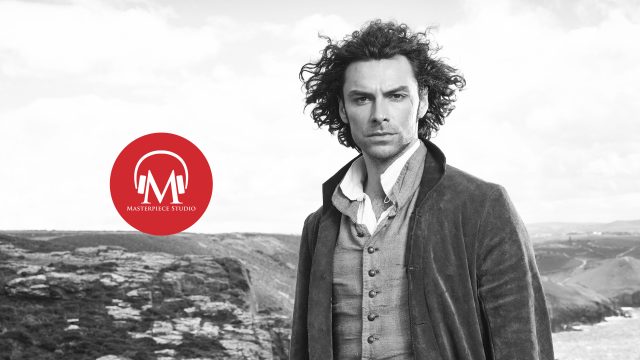Jace Lacob (Jace): The fourth episode of Poldark Season 2 ended tragically. Don’t know what we’re referring to? Then make sure you’ve seen the latest episode, which aired October 23rd, before listening. Otherwise, you might find yourself drowning in Poldark-related spoilers.
MASTERPIECE Studio is brought to you by Audible. For a free trial, go to Audible.com/Masterpiece.
Jace: I’m Jace Lacob and you’re listening to MASTERPIECE Studio.
Francis Poldark might be the most unfortunate character to appear on MASTERPIECE since Lady Edith Crawley. But whereas Downton’s Lady Edith got a happy ending, the same wasn’t in the cards for Francis.
CLIP:
Henshaw: Is it Mr. Francis?
Ross: I think he might still be down below. No one’s seen him for hours.
Jace: Although Francis has looked down the barrel of a gun before, it didn’t make his death any less upsetting or any less surprising.
In fact, for the first time in a long time, things were looking up for Francis.
He was tired of living in Ross’s shadow, and he changed his ways, determined to make something of himself.
CLIP:
Kyle Soller: Exactly. You see a person in the prime of his life, effectively becoming a great husband, becoming quite capable at running a mine, and just a good friend.
And then he has just got to go off and drown himself, yeah.
Jace: Today, American actor Kyle Soller weighs in on Francis’s cruel fate and talks about his last days on the set of Poldark.
Welcome.
Kyle Soller (Kyle): Hello.
Jace: Your friend, actor Tom Hughes, said of you, “I’ve had three or four people say to me, I had no idea he’s not English.” Are people often surprised to learn that you’re American?
Kyle: Yeah, I think they are. Now the cat is officially out of the bag, so I really don’t know what I’m going to do. That was my street cred, I think. Now that has completely gone out the window (laughs).
Yeah, I’ve had a lot of people come up to me in the street, and I’ll, kind of, have a conversation with them, and it’ll take them halfway through the conversation for them to just, kind of, blurt out, “Oh my god, you’re American?”
I kind of like it. I think it’s nice that they thought I was something else, and couldn’t tell.
Jace: Well, you’re very convincing. You’re very convincing.
Kyle: Thanks, man.
Jace: It’s often challenging for some American actors in England. Do you agree?
Kyle: Yeah, definitely, big time. When I first got out of drama school, I actually started going into auditions as English rather than American, because I thought people weren’t really– they weren’t really listening to me, they were listening to me doing the accent. And I started to get really upset with not booking these jobs. And then I started lying basically.
Jace: Did you audition for Poldark with an English accent?
Kyle: No, I was going to say that I just completely dressed up in 18th century costume (laughs) and came in like Monty Python with a clip-clopping horse like with my hands.
Jace: (Laughs)
Kyle: That’s not really funny.
But no, I didn’t. I just sent in a tape, actually. So I’m pretty sure they knew I was American. They’d definitely seen me in a play where I was American in the West End. So I think, luckily, they just took it off the strength of the accent in the tape.
Jace: No subterfuge required.
Kyle: Yeah. Although when I met them in London, I, sort of, did this weird half-English, half-American, like “Do I admit it? Don’t I admit it?” Like…
Jace: You’re the Madonna of Poldark.
Kyle: Yeah, exactly. God bless you.
Jace: Now, you gave up finishing a degree in Art History to accept a place at RADA. Did you struggle with that decision at all?
Kyle: Yeah. Maybe a little bit like Francis, I was quite interested for a very long time in doing the “right thing,” and the right thing meant getting an academic degree.
And I am absolutely atrocious at making decisions. You send me to the supermarket and I’ll come back in about two hours, and the supermarket is five minutes away, and it’s because I’ll be looking at different things on the shelves, just wondering if that’s the one or that, or “No, should I get that almond milk or that almond milk? Oh no I don’t…”
So in that sense, I struggled with it. I didn’t really struggle… Once I had gone to RADA and I did this summer school, and then everything just clicked into place. It was a little stressful just dropping out, leaving a degree, but I knew I was finally following something that I was ready for, I guess.
Jace: Now I should preface this by saying that we know Francis is dead. And we’ll get to that.
Kyle: Or do we?
Jace: Or do we? Maybe he comes back from a watery grave.
Kyle: Yeah.
Jace: What did you make of the character of Francis Poldark initially when you first saw the script, and how has Francis changed significantly from that first episode? What do you make of his journey, overall?
Kyle: Well, what first attracted me to the character was his journey. He starts out as, kind of, a happy-go-lucky young guy. He can’t believe his luck, actually, that he has got Elizabeth in the first episode of the first season. She’s the, kind of, Prom Queen, and he never expected… I don’t think he ever expected that she would say “Yes.”
But after Ross’s return, he really goes through a really, really upsetting downward spiral where he’s horrible to everyone in his family. He has got an incredible amount of self-loathing.
I mean he really is written that way in the books. He is a big old a-hole to people. He is incredibly childish, and impulsive, and rash. And you wish you could just slap him across the face and say, “Buddy, it’s going to be all right. Just say you’re sorry.” But the Poldark family is incredibly proud and his pride got the best of him, I think, for the majority of Season 1.
And, I think, I think what I, sort of, enjoyed was knowing that Francis could really be as horrible as he wanted to in Season 1, because I knew that he would wind up coming good in the end.
But I have a lot, a lot, a lot of sympathy for Francis. I think he’s completely misunderstood. It’s just that he’s his own worst enemy.
Basically, that is a really, really long way of saying I really enjoyed playing the character.
Jace: Well, one of the things I love is that Ross and Francis do complement each other. At one point Demelza even says of the cousins, “Put the two of you together and that would make a complete man.” Is she accurate in that respect? Do they, sort of, fuse together to be one complete man?
Kyle: I think this is what you see in Season 2, when they can actually put their differences aside and their pride aside, and join together in their mining venture and in their friendship, and a lot of stuff gets done. They’re really productive. They’re like… Their relationships start blossoming with their significant others.
It’s interesting. I think, she’s definitely onto something. Francs has a lot of attributes that Ross doesn’t and vice versa.
Jace: What does Francis see in Ross that he envies?
Kyle: I think his confidence, and also his selflessness, and his courage. I think, those are probably the big ones. I think, he’s… He has got quite a noble spirit and always shunned the family name, I guess. He didn’t shun it. He respected the family name, but he never bought into any of the crap that Francis did in the first season, in becoming friends with George, and appearances. I think, Francis always really respected Ross for that and felt that he could never do that. He was too tied into doing what was expected of him.
Jace: We see the consequences of Francis’s sense of honor or familial pride with his duel with Captain Blamey in Season 1.
CLIP:
Francis: …seven, eight, nine, ten. [Shoots]
Jace: What was it like filming an 18th century duel with pistols?
Kyle: It was amazing. It was so cool. Yeah, real-life, flintlock pistols. I mean, they were museum pieces and we got to fire them. It was such a fun scene to shoot, anyway. I mean, we just felt like we were little kids, I think, running around with pirate pistols.
Jace: There’s a streak of petulance to Francis that’s evident in his meltdown about his suspicions about Ross’s role in Verity and Blamey’s courtship in Season 1. Why does he see their courtship has such a personal affront?
Kyle: Well, that would basically drag the family name through the mud. Blamey is a self-professed and convicted wife murderer, albeit it was an accident. Like I was saying earlier, Francis is too concerned with the family name.
And I think, specifically though, Francis was extremely hard on Verity. And that’s because, unfortunately, that’s how, it seems, women were treated back then.
CLIP:
Verity: Was that the door?
Mrs. Chynoweth: Were you expecting someone, my dear?
Charles: She’s too valuable here to be thinking of gentlemen callers.
Kyle: Verity, didn’t have a suitor, and so she became a maid effectively, in her own home, and Francis had no problem in treating her like that.
So I think the explosion in regards to Blamey is a double-edged thing: on one hand he would be losing this vital part to the household, which is Verity cooking, cleaning, and then also, completely besmirching the family name.
I think he reacts, like you say, extremely petulantly and… I mean, he goes overboard. He challenges a guy, a naval seaman, to a duel when Francis has never picked up a weapon in his life (laughs) let alone gotten into a fight with anyone.
CLIP:
Francis: When will it be convenient for you for you to meet me, Captain Blamey?
Blamey: As soon as you like, sir.
Verity: Andrew, no. Francis, please.
Francis: Get me a pistol.
Ross: Get one yourself.
Kyle: But he just had these moments of blind… I don’t think it was blind rage or anything. I think he saw an opportunity to stand up for what he believed in, in a very brash way, in front of Ross, and that meant a lot of dude points (laughs) I think, to him. I think, if he could do that in front of Ross, and then it would get back to Elizabeth, and he would be this, kind of… I think he was constantly looking for approval, which is the sad thing about it. I think in most scenes he’s just constantly looking for approval out of people.
Jace: When we find him at the start of Season 2, he has lost his fortune and nearly lost his marriage. And that’s the very bleak place that Francis finds himself, which culminates in that suicide attempt. What is the breaking point for him?
Kyle: It’s a cumulative thing I think.
There’s a moment when he tries to patch things up with Ross as he’s been trying to do since the end of Season 1.
CLIP:
Francis: The encounter yesterday… That was not my doing. Still, I’d hoped we could put past quarrels behind us.
Ross: I had hoped so too, but I find now I cannot.
Kyle: And Ross just shoots him down. I think he saw that as a final “no way in hell will we ever be okay again” from Ross, which was a huge nail on the coffin.
But then, I think, right before he leaves for Bodmin, for the trial, he speaks to Elizabeth.
CLIP:
Francis: It’s a terrible thought, is it not? A world without Ross.
Elizabeth: I wonder how Demelza would bear it.
Francis: How would any of us bear it for which of us does not secretly adore him?
Kyle: He gets her to admit that she secretly cares for Ross. And, I mean, you wish that there just could have been a therapist like in Cornwall, or something, for them to go to like couple’s therapy, or something, just like, “Talk about your feelings.”
I think that was the final thing that tips him over. There was enough self-loathing there already for him to just go, “Okay, that’s it. I’m done.”
Jace: I love the scene where Francis confronts George and he says, “You’ll never again set foot in my house, nor approach me or my family including my son.” What was that confrontation scene like, shooting it?
Kyle: It was great. It was like infiltrating his lair. It takes place in his den, and George is there with his cousin, Cary, just looking evil, and Francis just comes in and drops this bombshell.
CLIP:
Francis: You will never again set foot in my house, nor approach me or my family, including my son. He is no longer your Godson. We are no longer your friends. You may turn us out of Trenwith if you wish. It will be a small price to pay to escape the noxiousness of your acquaintance.
Kyle: I think that that scene was really about Francis finally doing what he should have done years ago. And I think he also wanted to do it as a final sign of unity to Ross and say that, “That is not the person that I am. I don’t associate with people like that. I know this is completely reckless, but I’ve seen you do it and get away with it, so I’m going to try it as well.”
I think that that is completely foolhardy, but if he didn’t die, I wonder what would have happened.
Jace: Francis has a beautiful scene with Demelza in which we actually see Francis’s wisdom. He tells Demelza to stop thinking that Ross did her favor by marrying her.
CLIP:
Demelza: Elizabeth is so lovely and well bred. And she’s Ross’s first love. How can I compete with perfection?
Francis: You must do away with the notion that someone has done you a favor by letting you into this family.
Jace: What did you make of that scene when you read it? And what was it like shooting it with Eleanor?
Kyle: It was really… It was really emotional shooting it with Eleanor.
I loved that scene. When I read it in the books, I just said, “Finally, yes, great.” This final act of kindness from Francis, sort of, was the signal that he had come full circle and had reached that level of emotional maturity that was like, “Oh man! You are actually like a real person again.”
And I think also that scene is about recognizing a pain in Demelza that Francis had, which was that, I think, Francis on more than one occasion thought that Elizabeth was doing him a favor by marrying him. He never felt worthy of her love or of her affection, or never felt comfortable and quite certain that it was actually him that she loved.
Jace: They’re both the second bests.
Kyle: Exactly. And I think, recognizing that in someone else and being able to offer than counsel was… You can only do that if you’re really in a good place.
Jace: And then he has to go off and die.
Kyle: Then he just got to go off and drown himself, yeah.
Jace: He has to drown.
You said you knew going in that– what his arc would be in Season 2, so you were aware of the fact that he was going to be killed off this season. What was it like having that over your head, and constructing a character knowing that he would redeem himself just in time to meet his watery fate?
Kyle: I mean, the great joy in doing a project like this, which is already a series of books, is that everybody knows what’s going to happen already.
But, like you say, knowing that he’s actually going to die… I don’t know, I guess, I never really thought about that. I never looked at his death as a marker going like, “Oh! That means I can get away with this or that.”
I mean, I’m talking myself in circles here, but I think Debbie Horsfield’s adaptation was really faithful to the books. And that journey of Francis’s is quite straightforward.
I suppose, because Francis was never really allowed to be happy (laughs), apart from maybe Episode 1, or the first five minutes of Episode 1, Season 1. Episodes, what is it like, 2, 3, 4, 5 of Season 2 were just amazing to play because…
Jace: Well, he becomes the best version of himself.
Kyle: Exactly, exactly. You see a person in the prime of his life effectively. So I played it like he was just living everyday like it was his last.
I’m not really sure that answers your question.
Jace: It does. It does. We got there. We got there.
Kyle: Okay.
Jace: I want to talk about the logistics of the death scene in the mine itself. Where was this actually shot and how long were you submerged in the water? What was it like shooting this sequence?
Kyle: Oh my God, I’m getting heart palpitations actually, just thinking about it (laughs). Thankfully, it wasn’t down a real mine because otherwise… Those are scary places. But we were on set, and it actually was, kind of, as scary as a real mine (laughs).
It starts out with quite lukewarm-temperature water and then it gets really cold, really quickly.
It was really realistic; I got a lot of really big cuts on my hands from the rocks on the set that were around the top of the shaft that I fell in. The shaft itself was quite shallow, so I had to hold myself underwater with these kind of piping rod things that I would also try not to get, kind of, stuck in.
And I’m sure health safety is having a nightmare, me saying this right now.
I was very well-looked after.
But it took a really long time. It was really cold, but was very fun in the end, actually, when we succeeded in actually getting the shots that we needed.
Jace: Now, this isn’t the first time that Francis falls into water in the mine on the show. In the very first episode of Poldark, Ross and Francis argue and he falls in, but Ross saves him and says, “Why the hell don’t you learn to swim?” So my question is why the hell doesn’t he?
Kyle: Yeah. It’s kind of like a… It’s not really a modern problem anymore, is it? But he never really needed to bother to learn to swim, because he didn’t really work, and his work never really took him out onto the open water. He was a landed gentry. I mean, that sounds like a really bad excuse, but I think it is as simple as that, and it’s so unfortunate that it comes back to bite him.
But it’s pretty sad that, you know, he’s there just holding on to a nail.
Jace: The slippery nail.
Kyle: The slippery nail in the water, yeah.
Jace: While he holds onto that slippery nail for dear life, Francis has a vision of Ross appearing and saving him before he finally sinks below the surface. Does Francis die believing steadfastly in Ross or is his final moment one of horror?
Kyle: I believe he dies believing that he and Ross are reconciled, and friends again. And so… I always approached it like Ross and Francis were brothers just from different mothers. I thought it was extremely touching. And the final person that he sees is Ross, it’s not Elizabeth, which is interesting, but it’s Ross and that signified to me that they were back.
Yeah, it’s really sad to think about actually.
Jace: Aw.
Kyle: Yeah, yeah.
Jace: Now, Ross repeats that line from Episode 1…
CLIP:
Ross: Why the hell didn’t you learn to swim?
Jace: We’re left with the final shot of Francis’ body. What was the atmosphere on the set like when you shot that?
Kyle: Everyone was like cheering and laughing and had, you know, little firecrackers in a cake, and… No.
They were… It was… Yeah. It was sad. Everyone was really quiet. And then, they were really joyful and everything, because you don’t want people to just, kind of… You want people to celebrate it, rather than just sit there, and say nothing, and look morose. But it was really touching, I think, actually, because I saw that people were upset, I guess.
Jace: Now, Francis is obviously dead, so we think, unless there’s a twist.
Kyle: Unless he comes back to haunt the house of…
Jace: …to haunt Trenwith. Looking back at the series as a whole, do you have a favorite scene?
Kyle: Oh, yeah. I don’t know. I mean, there are quite a few, genuinely.
Aw man, I don’t… I mean, some of the card game scenes were amazing. Some of the horse riding scenes were amazing, because the horses just would decide what they wanted to do, and they’d walk you out of shot, and then walk you back into shot, and you’d have to try and say your line, just in time for the camera to see you, and then it would walk you away again. That scene with Demelza is really special for me.
There are quite a few actually, hard to choose. I guess that’s a good thing, though.
Jace: That is a good thing. Kyle Soller, thank you so much.
Kyle: Thank you, man. It has been a pleasure.
Jace: This week’s episode brought tears to our eyes, so what will next week’s episode bring? Tune in to MASTERPIECE next Sunday at 9 pm ET to find out.
Then in two weeks, actor Luke Norris joins us to talk about his role as the Cornwall surgeon who cures scurvy and breaks hearts: Doctor Dwight Enys.
CLIP:
Luke Norris: Yeah I mean like anyone though, you can’t help who you fall in love with right?
Jace: Get automatic downloads of the MASTERPIECE Studio podcast by finding our page on iTunes or Stitcher and hitting “subscribe.”
You can also listen to the podcast on our website: pbs.org/masterpiecepodcast.
MASTERPIECE Studio is hosted by me, Jace Lacob and produced by Rachel Aronoff. Kathy Tu is our editor. Special thanks to Barrett Brountas and Nathan Tobey. The executive producer of MASTERPIECE is Rebecca Eaton.
MASTERPIECE Studio is brought to you by Audible.
Sponsors for MASTERPIECE on PBS are Viking River Cruises, Audible, and The MASTERPIECE Trust.
CLIP:
Jace: I feel like you should do a PSA for water safety, though.
Kyle: (Laughs) Exactly.
Jace: Learn to swim everyone.













